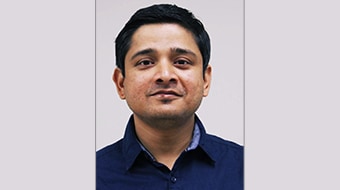[ad_1]
Every judge in India must adapt to technology like a person needs a licence to drive a car, the Supreme Court said on Friday as it directed all 25 high courts in the country to have video-conferencing (VC) facility in two weeks to conduct their hearings, and reminded constitutional court judges that their personal aversion to the use of technology cannot retrograde the digital push in the judiciary.

“The question is not whether a particular judge is tech friendly or not. If you want to be a judge in this country, you have to be tech friendly…know technology. There is no choice. It’s like you cannot say as a judge that I don’t know what a res judicata is or what interpretation of statutes mean. It’s like if you have to drive a car on the road, you have to have a licence,” a bench, led by Chief Justice of India Dhananjaya Y Chandrachud, said.
Directing the high courts to put in place necessary infrastructure, including Internet facility for lawyers and litigants appearing in person, the bench, which also included justices JB Pardiwala and Manoj Misra, added: “Technology is not a matter of choice anymore and all judges must realise it. It is as much a part of our legal system and resources as the law books are. Without technology, how do you function? Every judge in the system has to be trained.”
The court said it is “distressed” to learn that many high courts have dismantled their VC facility and dumped their computer screens at a time when the Union government has sanctioned the infusion of a huge corpus of ₹7,210 crore for the third phase of the eCourts mission.
The mission aims to bolster the digital infrastructure of courts by setting up 2,500 new modern, virtual-friendly courts, establishment of 1,150 virtual courts, 4,400 eSewa kendras in all court complexes from where citizens who are not technology-savvy can access virtual courts, besides a host of judicial services online, including e-filing and e-payment of court fees.
The CJI pointed out that several Supreme Court judges came forward and attended the training modules to learn more about technology and its use in judicial proceedings after the top court started using the digital platforms extensively.
“Why should the high court judges be so reticent about technology when judges at this level (Supreme Court) have been so receptive? Why the high courts have to be so retrograde? Every high court must make facility for online hearings and no judge will decline a request for VC hearings. We are going to say in our order,” the bench told the lawyers representing the Centre, states, high courts and various other tribunals.
On September 15, the bench had sought replies from the Union government and all 25 high courts regarding continuance of hybrid hearings, calling it an “important issue” that, it said, warrants suitable directives to ensure public money spent on creating infrastructure for video-conferencing facility do not go waste.
The decision to take stock of the use of technology as an enabler of open court philosophy and access to justice had come on a petition filed by Sarvesh Mathur, a resident of Gurugram in Haryana who complained that the Punjab and Haryana high court had stopped the VC facility.
During the hearing on Friday, the bench lamented that several high courts, including Allahabad and Bombay, have stopped using the VC facility. It then decided to issue pertinent directives for all high courts and tribunals across the country to make sure they make VC facility available to the lawyers and the litigants appearing in person, besides providing proper internet coverage and publishing links for VC in their cause lists.
“After a lapse of two weeks of this order, no high court shall deny access to VC facility or hearing through the hybrid mode to any member of the bar or a litigant desirous of availing of such facility. All state governments shall provide necessary funds to the high courts to put in place requisite facilities within the time frame as indicted above. The high courts shall ensure that adeaquate Internet and WiFi are available free of cost to all members of the bar and litigants appearing before the high court in person,” recorded the court order.
It added that links for accessing V-C shall be made available in the cause lists and that there shall be no requirement of making any prior application. The court requested Delhi high court judge Rajiv Shakdher to prepare a model standard operating procedure (SOP), with the assistance of advocates Gaurav Agrawal and K Parameshwar, who have been appointed as amicus curiae in the matter. “This SOP shall be circulated to all high courts for adoption of uniform SOP,” added the directive.
Even for tribunals, the court directed that the option of hybrid hearing is provided to lawyers within four weeks and asked the Centre to have a meeting with the chairpersons of these tribunals, including the company law tribunals, to ensure that necessary funds for infrastructure are made available.
In February, CJI Chandrachud, while hearing a separate clutch of petitions seeking access to justice through virtual courts as a matter of fundamental right for the litigants, had observed that technology “is here to stay” and cannot depend on the liking of the high court chief justices.
[ad_2]
Source link


